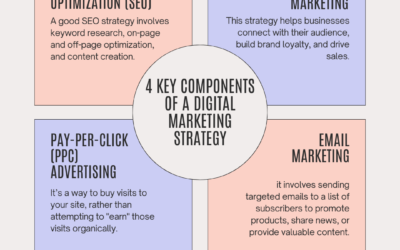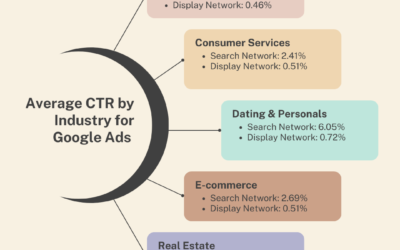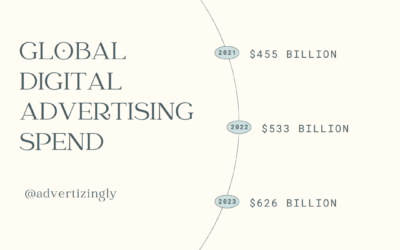Will AI Take Over Digital Marketing? The Future of AI-driven Marketing Strategies
Artificial Intelligence (AI) has become increasingly prevalent in various industries, revolutionizing the way businesses operate. Digital marketing is no exception, as AI-powered technologies are reshaping marketing strategies and tactics. In this article, we will explore the future of AI-driven marketing strategies and whether AI will ultimately take over the digital marketing.
AI tools and technologies are helping marketers make data-driven decisions, automate repetitive tasks, and personalize customer experiences. These advancements enable marketers to leverage valuable consumer insights, improve targeting, and deliver highly relevant content to engage the right audience at the right time.
While AI brings numerous benefits to digital marketing, questions arise about its potential to completely replace human marketers. Will AI be able to handle the creativity, intuition, and emotional intelligence that humans bring to marketing campaigns? Or will AI simply assist marketers in enhancing their capabilities?
Join us on this exciting journey as we look into the world of AI-driven marketing strategies and explore the future implications of AI on the digital marketing industry. Discover how businesses can adapt, embrace, and maximize the potential of AI while maintaining the vital human touch in their marketing efforts.
Understanding the basics of AI in digital marketing
AI, at its core, refers to the ability of machines or computers to mimic human intelligence and perform tasks that typically require human intervention. In the context of digital marketing, AI plays a crucial role in analyzing vast amounts of data to uncover valuable insights, automate repetitive tasks, and enhance customer experiences.
The foundation of AI in digital marketing lies in machine learning algorithms, which enable computers to learn from data and make predictions or decisions without explicit programming. By analyzing customer behavior, preferences, and patterns, AI algorithms can identify trends, optimize advertising campaigns, and deliver personalized content to target audiences.
AI-driven marketing strategies leverage these capabilities to gain a competitive edge in the digital landscape. Through AI, marketers can harness the power of data to make informed decisions, optimize their marketing efforts, and drive better results.
Read more : Effective Strategies for Growing Your Business
Benefits of AI-driven marketing strategies
AI-powered marketing strategies offer a myriad of benefits for businesses looking to enhance their digital marketing efforts. One of the key advantages is the ability to leverage valuable consumer insights. AI algorithms can analyze vast amounts of data, including demographic information, browsing behavior, and purchase history, to uncover patterns and trends that can inform marketing strategies.
Moreover, AI enables marketers to automate repetitive tasks, such as data entry, reporting, and campaign optimization. This automation not only saves time and resources but also reduces the risk of human error. By automating these mundane tasks, marketers can focus on more strategic activities, such as creative content development and customer engagement.
Another significant benefit of AI-driven marketing is the ability to deliver highly personalized experiences to customers. AI algorithms can analyze customer data in real-time to understand individual preferences and behaviors. This allows marketers to tailor content, offers, and recommendations to specific individuals, increasing the likelihood of engagement and conversions.
AI-powered tools and technologies for digital marketing
The rapid advancement of AI has led to the development of various tools and technologies that empower marketers to implement AI-driven strategies effectively. One such technology is natural language processing (NLP), which enables computers to understand, interpret, and respond to human language.
NLP plays a crucial role in chatbots and virtual assistants, which are increasingly being used in customer service and support. These AI-powered chatbots can engage in natural conversations with customers, answering inquiries, providing recommendations, and even assisting in purchase decisions. By leveraging NLP, businesses can provide round-the-clock support and improve customer satisfaction.
Another AI-powered technology that is transforming digital marketing is image and video recognition. AI algorithms can analyze images and videos to extract valuable information, such as objects, faces, and emotions. This technology enables marketers to automate the process of tagging and categorizing visual content, making it easier to organize and optimize digital assets.
AI-powered tools also excel in predictive analytics, allowing marketers to anticipate customer behavior and optimize marketing campaigns accordingly. By analyzing historical data, AI algorithms can predict customer preferences, purchase likelihood, and churn probability, enabling marketers to optimize their targeting and messaging for maximum impact.
How AI is transforming customer segmentation and targeting
Customer segmentation and targeting are essential components of any successful marketing strategy. Traditionally, marketers have relied on demographic information and basic customer profiles to segment their audiences. However, AI is revolutionizing this process by enabling marketers to create more granular and dynamic customer segments.
AI algorithms can analyze vast amounts of data to identify patterns and group customers based on their preferences, behaviors, and engagement levels. This allows marketers to create highly targeted segments and deliver personalized messages that resonate with each group.
Moreover, AI algorithms can continuously learn and adapt based on customer interactions, enabling real-time segmentation and targeting. This dynamic approach ensures that marketing messages remain relevant as customer preferences and behaviors evolve.
AI also plays a significant role in programmatic advertising, where ads are automatically bought and sold in real-time auctions. AI algorithms analyze customer data and ad inventory to determine the most relevant ads for each individual. This level of personalization improves the effectiveness of advertising campaigns and maximizes return on investment.
Personalization and AI in digital marketing campaigns
Personalization has become a key differentiator in the digital marketing landscape. Customers expect tailored experiences that cater to their specific needs and preferences. AI-powered technologies are enabling marketers to deliver highly personalized content and recommendations at scale.
One way AI achieves personalization is through recommendation systems. By analyzing customer data and behavior, AI algorithms can generate personalized product recommendations, content suggestions, and cross-selling opportunities. These recommendations enhance the customer experience, increase engagement, and drive conversions.
AI can also personalize the content itself, adapting it to individual preferences and context. Dynamic content generation tools powered by AI can create variations of marketing messages based on customer data, ensuring that each customer receives the most relevant and compelling content.
Furthermore, AI-driven personalization extends beyond textual content. Visual personalization is also possible through AI technologies like image recognition and augmented reality. Marketers can leverage these tools to deliver personalized visuals, such as customized product images or virtual try-on experiences, enhancing the overall customer journey.
The role of AI in content creation and optimization
Creating high-quality and engaging content is a fundamental aspect of digital marketing. AI is increasingly playing a role in content creation and optimization, enabling marketers to streamline their processes and improve content performance.
AI-powered tools can automate content creation by generating articles, blog posts, and social media updates based on predefined parameters and data inputs. While AI-generated content may lack the creativity and emotional intelligence of human-written content, it can be a valuable resource for marketers looking to scale their content efforts or generate content for specific target segments.
Moreover, AI algorithms can analyze the performance of content across various channels and platforms. By understanding which types of content resonate with different audiences, marketers can optimize their content strategy to maximize engagement and conversions. AI can provide insights into the best-performing headlines, keywords, and formats, helping marketers refine their content creation and distribution strategies.
Leveraging AI for data analysis and insights
The abundance of data available in the digital landscape presents both opportunities and challenges for marketers. AI-powered data analysis tools can help businesses make sense of this data and uncover valuable insights that inform marketing strategies.
AI algorithms excel at analyzing large datasets and identifying meaningful patterns and trends. By processing and analyzing data from various sources, including social media, website analytics, and customer relationship management systems, AI can provide marketers with a holistic view of their audience and market.
Advanced AI algorithms can also perform sentiment analysis, gauging the emotional tone of customer interactions, reviews, and social media mentions. This sentiment analysis can help marketers understand customer satisfaction levels, identify potential issues, and tailor their marketing messages accordingly.
The real-time nature of AI-powered data analysis enables marketers to make agile decisions and optimize their strategies on the fly. By continuously monitoring and analyzing data, marketers can identify emerging trends, adapt their messaging, and seize opportunities in a dynamic and competitive digital landscape.
Ethical considerations in AI-driven marketing
As AI becomes increasingly embedded in digital marketing strategies, ethical considerations come to the forefront. Marketers must be mindful of the potential ethical implications and ensure that AI-driven marketing practices align with ethical standards and regulations.
One ethical concern revolves around data privacy and security. AI relies on vast amounts of data to function effectively, and marketers must ensure that this data is collected, stored, and utilized responsibly. Transparency and consent are crucial in building trust with customers and respecting their privacy rights.
Bias is another ethical consideration in AI-driven marketing. AI algorithms are only as good as the data they are trained on, and biases present in the data can lead to biased outcomes. Marketers must be vigilant in ensuring that AI algorithms are trained on diverse and representative datasets to avoid perpetuating biases in marketing campaigns.
Additionally, the impact of AI on the job market is a topic of concern. While AI-powered technologies can automate repetitive tasks, this can potentially lead to job displacement. It is essential for businesses to consider the social and economic implications of AI adoption and develop strategies to reskill and retrain their workforce.
The future of AI-driven marketing strategies
The future of AI-driven marketing strategies is both exciting and uncertain. While AI has already made significant strides in reshaping digital marketing, the full extent of its capabilities and impact is yet to be realized.
AI has the potential to automate routine tasks, optimize targeting and personalization, and enhance marketing performance. However, it is unlikely that AI will completely replace human marketers. The creativity, intuition, and emotional intelligence that humans bring to marketing campaigns are difficult to replicate with AI technologies alone.
Instead, the future of AI-driven marketing lies in collaboration between humans and machines. AI can assist marketers in analyzing vast amounts of data, uncovering insights, and automating repetitive tasks. This collaboration allows marketers to focus on strategic activities that require human judgment and creativity, such as storytelling, brand building, and relationship management.
As AI continues to evolve, it is crucial for businesses to adapt, embrace, and maximize its potential while maintaining the vital human touch in their marketing efforts. By leveraging AI-driven marketing strategies, businesses can gain a competitive edge, enhance customer experiences, and drive sustainable growth in the digital era.
Read More : How to Write Blog Posts that Drive Traffic to Your Website
In conclusion, AI is transforming digital marketing by enabling data-driven decision-making, automating tasks, and delivering personalized experiences. While AI brings numerous benefits, it is unlikely to completely replace human marketers. The future of AI-driven marketing lies in collaboration, where AI assists marketers in enhancing their capabilities while humans provide the creativity and emotional intelligence necessary for successful marketing campaigns. As businesses navigate the future of AI-driven marketing strategies, it is essential to uphold ethical standards, prioritize data privacy, and consider the social and economic implications of AI adoption. By embracing AI while maintaining the human touch, businesses can thrive in the ever-evolving digital landscape.




